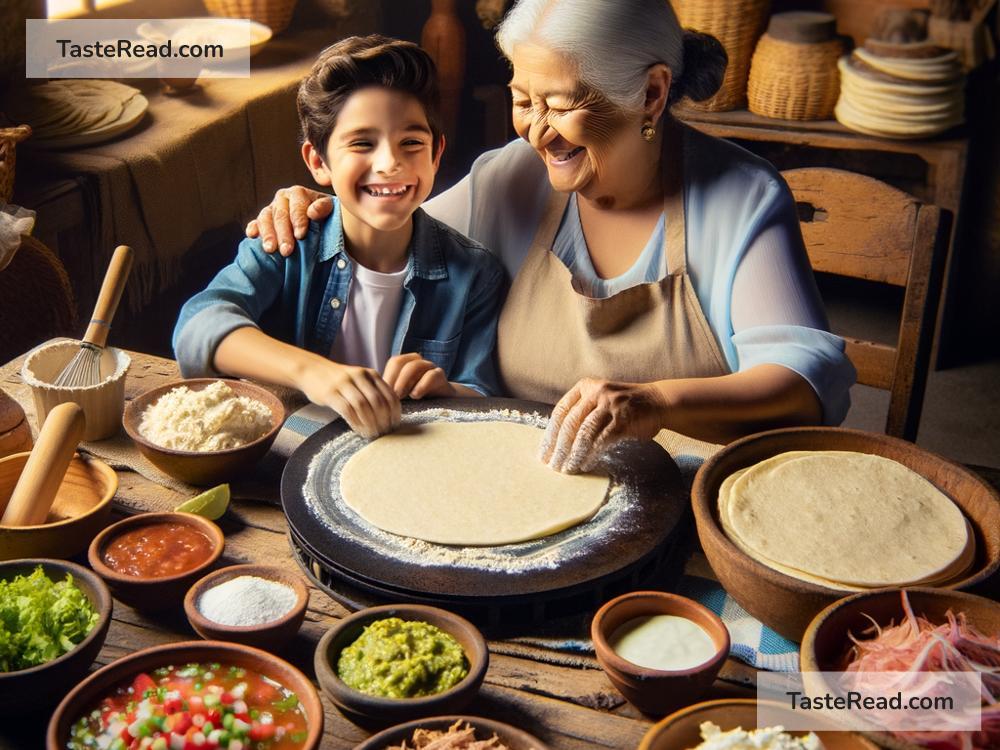The Role of Tortillas in Mexican Cuisine and Daily Life
When people think about Mexican food, one of the first things that comes to mind is the humble tortilla. This round, flat bread plays a central role in Mexican cuisine and culture. Made from corn or flour, tortillas are versatile, nutritious, and deeply rooted in Mexico’s history and everyday life.
A Heritage of Corn
To understand the importance of tortillas, we need to look at Mexico’s connection to corn. Corn, or maíz, is a staple crop in Mexico and has been grown there for thousands of years. The Indigenous peoples of Mexico, like the Aztecs and Maya, relied on corn as their main source of food. They invented a process called nixtamalization, where dried corn was soaked and cooked with lime. This process made the grain easier to grind and more nutritious, paving the way for tortillas as we know them today.
Even today, corn tortillas are a symbol of Mexico’s agricultural past and cultural pride. Families across Mexico often prefer handmade corn tortillas over store-bought ones. In rural areas, women often gather early in the morning to make fresh tortillas using traditional methods, keeping this ancient tradition alive.
A Basic Staple in Every Kitchen
The tortilla isn’t just food; it’s the foundation of Mexican meals. Whether you’re eating breakfast, lunch, or dinner, tortillas are on the table. They’re used for wrapping, scooping, and holding other ingredients, making almost every dish easier to enjoy.
One of the most famous tortilla-based dishes is the taco. Mexicans fill tortillas with all kinds of toppings, like meat, beans, cheese, vegetables, and salsa. There are endless varieties of tacos, from street food versions to gourmet creations served in restaurants. But no matter the type, tortillas are always an essential part of the eating experience.
Another popular dish is the quesadilla, where a tortilla is folded around melted cheese, often paired with meats, vegetables, or even fungi like huitlacoche (corn mushroom). Tortillas are also cut into pieces and fried to make totopos (tortilla chips), which are served with guacamole or dipped in spicy salsa.
In addition to tacos and quesadillas, tortillas are also used to make dishes like enchiladas, flautas, and chilaquiles. Each of these meals highlights the tortilla’s adaptability, as it can be steamed, baked, fried, or grilled, depending on the recipe.
Tortillas in Daily Life
Tortillas aren’t just for special occasions—they’re part of everyday life in Mexico. They’re common at family dinners, office lunches, and street food stands. Some people even use tortillas as a substitute for plates when eating, folding the food in a tortilla so they can eat with their hands. This practical use is a reflection of how integral tortillas are to Mexican life.
In many homes, tortillas are bought fresh from local tortillerías, shops that specialize in making tortillas. Tortillerías often have machines that press and cook tortillas in large quantities, ensuring a steady supply for the community. Families also stock up with kilograms of tortillas, treating them as a pantry essential, just like bread in other parts of the world.
Cultural Tradition
Beyond their role in meals, tortillas hold cultural significance. They’re often shared during festivals, weddings, and religious events. Many Indigenous ceremonies include offering tortillas to deities as a symbol of gratitude for nature’s abundance.
The tradition of tortilla-making is also passed down through generations. Grandparents teach their children and grandchildren how to make tortillas by hand with a metate (stone grinder) or tortilla press. These lessons are more than just cooking skills—it’s a way for families to bond and keep their heritage alive.
A Symbol of Unity
Tortillas bring people together. Whether it’s a group of friends enjoying tacos at a market stall or a family preparing a meal around the dinner table, tortillas encourage sharing and connection. Their versatility ensures that everyone can enjoy them, regardless of age, income, or region. Rich or poor, tortillas are a common denominator that unites the Mexican people.
More Than Just Food
As global interest in Mexican cuisine grows, tortillas are becoming more popular in other countries. Supermarkets stock packs of tortillas, and international restaurants serve tacos and enchiladas. Yet no matter where tortillas are eaten, their true essence lies in the traditions and community they represent.
For Mexicans, tortillas are more than food—they’re a way of life. They reflect Mexico’s history, resilience, and creativity. Whether as a taco shell, a quesadilla wrap, or a stand-alone snack, tortillas show us how simple, everyday foods can hold deep meaning.
So, next time you eat a tortilla, remember its journey—from ancient crops to the heart of Mexican homes. It deserves appreciation, not just for its flavor but for its cultural importance in bringing people together, one meal at a time.


